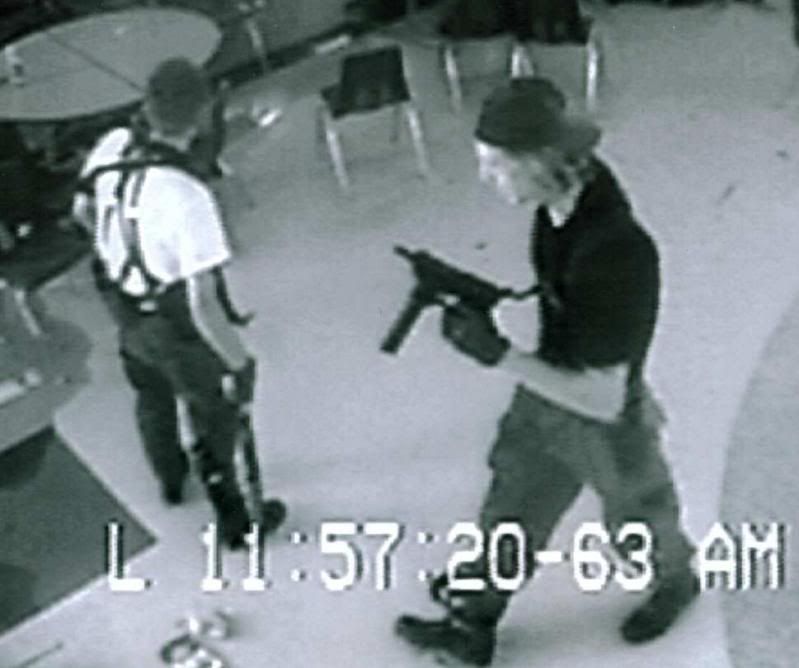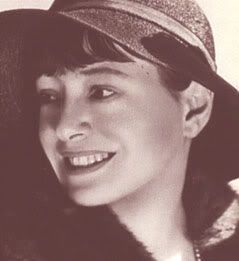
Perhaps the most powerful lesson we could learn from the Columbine tragedy of 10 years ago, is how completely wrong the mass media can get a story. If you still think of Columbine as a cautionary tale on the dangers of violent video games or bullying and cliques, let it go. These are comforting fairy tales we tell ourselves to make sense of the senseless. It all seems so much more controllable, if we can identify the social mechanisms and change them. Don't get me wrong. I think anti-bullying programs in schools are a great idea, but nothing of the kind would have stopped Eric Harris, or his sidekick Dylan Klebold. Such is the conclusion of author Dave Cullen and of FBI investigators who scrutinized the evidence. Cullen's book, entitled simply Columbine
Cullen concluded that the killers weren't part of the Trench Coat Mafia, that they weren't bullied by other students and that they didn't target popular jocks, African-Americans or any other group. A school shooting wasn't their initial intent, he said.
It turns out the reason for the Columbine massacre is as simple as it is troubling. Eric Harris was a psycopath. Dylan Klebold, the weaker personality, was a suicidally depressed kid who took on Eric Harris's ethos as his own. Together, they planned a spectacular event -- one that would have eclipsed the Oklahoma City bombing. Their bomb-making skills were inadequate and they failed to wipe out the entire school. But, their plan had little to do with personal grudges against individuals. They just wanted to kill as many people as they could.
The killers, in fact, laughed at petty school shooters. They bragged about dwarfing the carnage of the Oklahoma City bombing and originally scheduled their bloody performance for its anniversary. Klebold boasted on video about inflicting "the most deaths in U.S. history." Columbine was intended not primarily as a shooting at all, but as a bombing on a massive scale. If they hadn't been so bad at wiring the timers, the propane bombs they set in the cafeteria would have wiped out 600 people. After those bombs went off, they planned to gun down fleeing survivors. An explosive third act would follow, when their cars, packed with still more bombs, would rip through still more crowds, presumably of survivors, rescue workers, and reporters. The climax would be captured on live television. It wasn't just "fame" they were after—Agent Fuselier bristles at that trivializing term—they were gunning for devastating infamy on the historical scale of an Attila the Hun. Their vision was to create a nightmare so devastating and apocalyptic that the entire world would shudder at their power.
Harris and Klebold would have been dismayed that Columbine was dubbed the "worst school shooting in American history." They set their sights on eclipsing the world's greatest mass murderers, but the media never saw past the choice of venue. The school setting drove analysis in precisely the wrong direction.
In his original article for Slate, Cullen debunked the litany of Columbine myths propagated by the media:
1. Targeting jocks, blacks, and Christians: There were no targets. Harris and Klebold just wanted body count, and they didn't care who died. They expected their bombs to do most of the killing, murdering everyone in the cafeteria, irrespective of clique or social standing. When the bombs failed, they shot indiscriminately, firing into open crowds and under tables without bothering to see who their victims were. They taunted jocks briefly in the library, but they taunted virtually everyone else there, too.
2. The Trench Coat Mafia: A small group of Columbine students did dub themselves the Trenchcoat Mafia, and they did have a feud with a band of jocks in 1999. But it was never a formal gang or club, and most of the members graduated nearly a year before the massacre. Harris and Klebold were never closely affiliated with the group and did not appear in the 1998 yearbook picture identifying the members. The TCM had little to do with Harris and Klebold and nothing to do with the massacre. The killers wore long coats in order to hide their weapons.
3. The Hit List: Eric Harris did create an enemies list, with a wide and sometimes comical assortment of personalities—students who pissed him off, girls who refused his dates, Tiger Woods. There's no indication that these were ever intended as targets. No one on the list was killed.
4. Christian Martyr Cassie Bernall: One of the killers allegedly asked student Cassie Bernall if she believed in God, then killed her when she said yes. Bernall became a revered figure among evangelical Christians. In fact, one of the killers posed the question to another girl, Valeen Schnurr, after she had already been shot. They had a short exchange, he reloaded, got distracted, and she crawled away to safety.
5. Marilyn Manson: Klebold and Harris hated Marilyn Manson. On his Web site, Harris said he loved, "Good, fast, hard, strong, pounding TECHNO!! Such as KMFDM, PRODIGY, ORBITAL, RAMMSTEIN, and such."
6. Escape to New York: Harris' journal does contain a passage about hijacking a plane and crashing it into New York City, but that appears to have been an early fantasy. He settled on a more practical scheme long before he and Klebold actually staged their massacre. By the time of the attack, they fully expected to die at the high school. They refer to their death routinely and explicitly in their writings and in their videos.
7. Outcasts: Perhaps the most pervasive myth is that Harris and Klebold were rejected outcasts. They were not captains of the football team, but they were far more accepted than many of their schoolmates. They hung out with a tight circle of close friends and partied regularly on the weekend with a wider crowd.
Columbine is a cautionary tale. Just not for the reasons we were led to believe. It should serve as a reminder of how completely wrong the prevailing narrative can be, and how badly professional journalists can serve their audience, in their haste to tell us the story.
“Columbine” is an excellent work of media criticism, showing how legends become truths through continual citation; a sensitive guide to the patterns of public grief, foreshadowing many of the same reactions to Sept. 11 (lawsuits, arguments about the memorial, voyeuristic bus tours); and, at the end of the day, a fine example of old-fashioned journalism.








